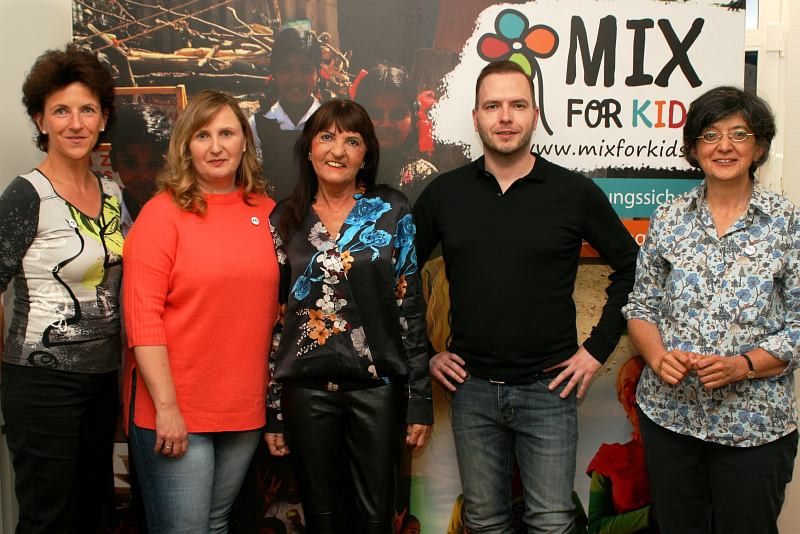The association’s members meet

One year after the not-for-profit association was founded, Mix for Kids’ members met for their very first statutory general meeting. “A great deal has happened in that one year. We have achieved a lot,” stated the chair, Silke Wurlitzer. In her review, she thanked Dr. Paula Torres Londoño for her commitment in supporting their charity work in India and Albania. She also expressed her gratitude to the secretary and treasurer, Sabine Schmidbauer, for managing both membership and the association’s finances, as well as to Michael Kämmerer for his press and PR activities.
Before Mix for Kids started its work in 2018, Silke Wurlitzer and Dr. Paula Torres Londoño had gone to see for themselves the funding opportunities in India. “We wanted to make sure that the money we raised would get to where it was intended,” said Ms. Wurlitzer as she underscored the association’s mission, namely, to make disadvantaged children and teenagers’ lives worth living.
The activities focus around India because Steffen Mix, whose death led to the foundation of Mix for Kids, traveled there frequently and, as the Head of Purchasing at Kräuter Mix, maintained close contact with suppliers from whom the company purchases key raw materials such as onions, flea seeds and fenugreek seeds. The country is home to 1.4 billion people, around 10 million of whom are children living on the streets in inhumane conditions.
At the members’ meeting, Silke Wurlitzer and Dr. Paula Torres Londoño gave a detailed presentation on the individual projects the association supports. In Vadodara, there is the children’s home for 100 orphaned boys between six and eighteen and the open shelters for street children, as well as the women’s self-help group where they produce and sell spices. In Chhota Udaipur, Mix for Kids supports children’s sports activities and organic farming to improve the lives of the indigenous people living there. In Albania, there are school scholarships for children from mountain villages while in Würzburg, Germany, funding goes to Klinikclowns, a not-for-profit that sends clown doctors to hospitals.
Sabine Schmidbauer presented the figures: In the 2018 financial year, almost 50,000 euros were donated to fund various projects. The association has 88 members, including five legal entities as supporting members. In accordance with its accountability reports, the entire board was unanimously approved by the general meeting. Moreover, the twenty members present decided to continue supporting the projects involving the self-help group and the indigenous population in 2019 as these projects had initially been limited to one year. Last but not least, the group discussed how to continue attracting donations and new members in the future.